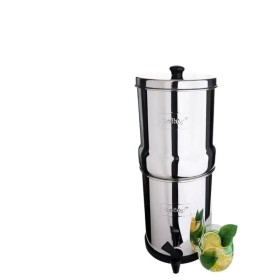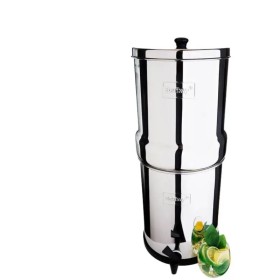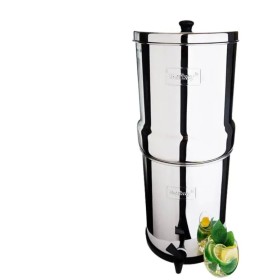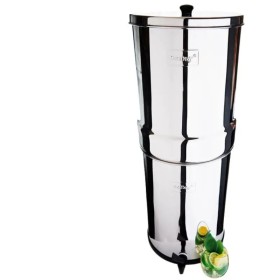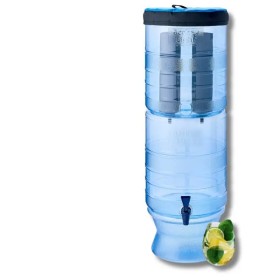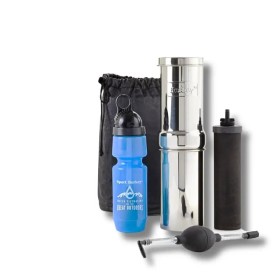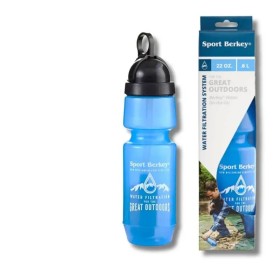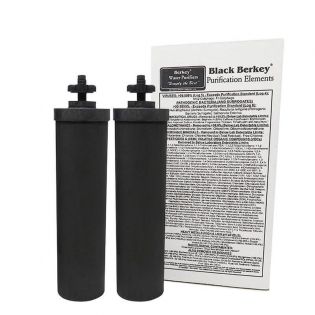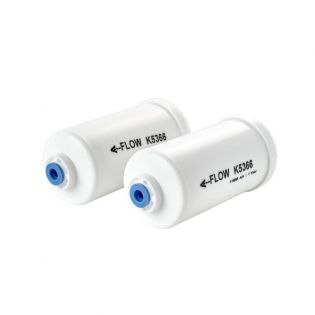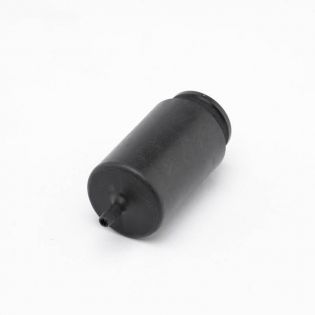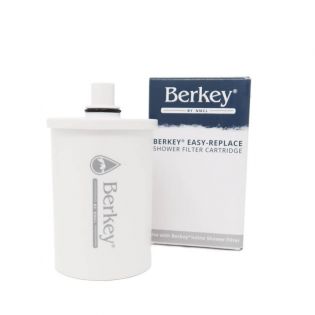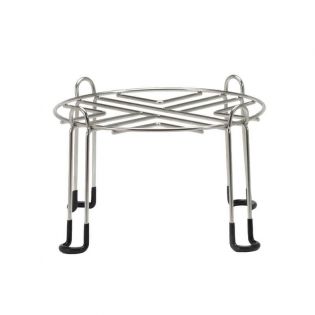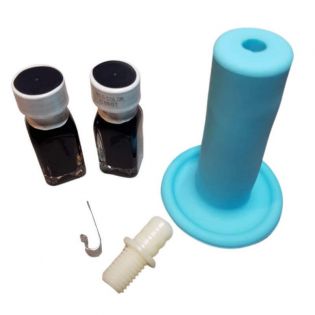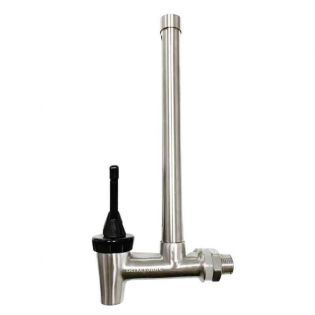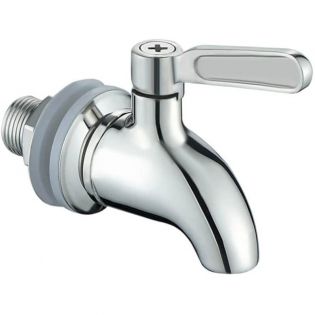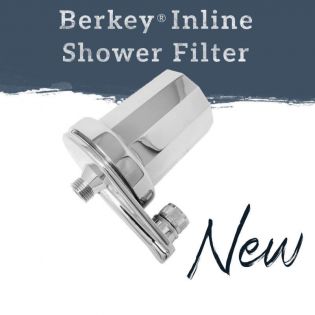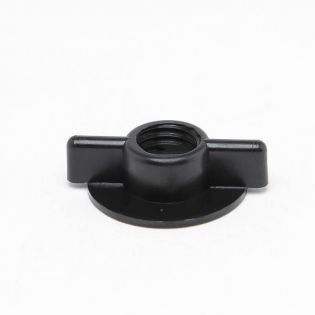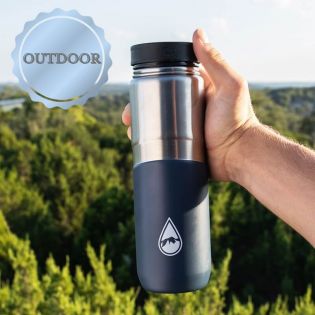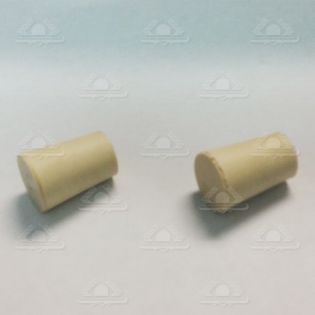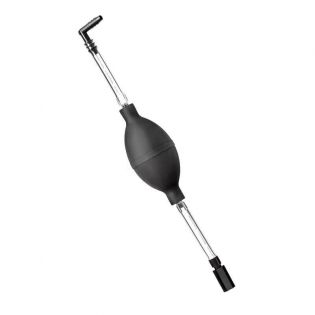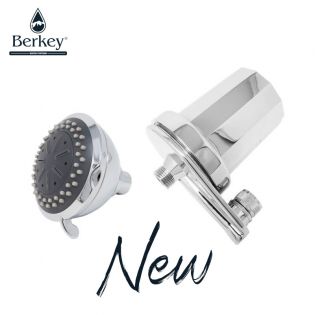Why filter your water?
Water, an essential component of our body, is everywhere: in our brain, our tissues, at the heart of our cells...
This shows how important it is to pay attention to the quality of the water we ingest.
By eliminating an average of 2 litres of water per day through perspiration, breathing and urine, we need to rebuild our stocks by assimilating 2 to 2.5 litres of water, ingested and absorbed, daily.
It is therefore advisable to drink 1 to 1.5 litres of water per day.
But the water we have access to is increasingly polluted. Pesticides, drug residues, hormones, heavy metals - the list of pollutants that we find almost everywhere is growing inexorably over time. The accumulation of these undesirable substances in our bodies and their cocktail effect are factors in the development of serious diseases.
Which water to drink?
Today, water is consumed from two main sources: bottled water and tap water. The first, widely used, has undeniable disadvantages, such as cost, pollution from the plastics used and a very relative quality. The second, although drinkable, often contains numerous pollution residues.
Another alternative, adopted by some people out of necessity or choice, is to drink "natural" and reclaimed water, such as rainwater, well water or spring water. These waters are not always free of pollution and need to be treated with special care. Berkey® filtration systems are not just water filters, but real water purifiers. As such, they are capable of purifying and making this type of water drinkable, taking the usual precautions.
Bottled water
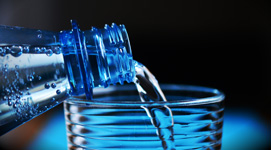 There are two types: mineral water and spring water. Both come from underground sources. Many people think, wrongly, that they are a panacea. But did you know that more than 90% of the most widely consumed brands contain, for example, micro-plastics, the health risk of which, even if it is still debated, seems quite probable?
There are two types: mineral water and spring water. Both come from underground sources. Many people think, wrongly, that they are a panacea. But did you know that more than 90% of the most widely consumed brands contain, for example, micro-plastics, the health risk of which, even if it is still debated, seems quite probable?
Some contain undesirable substances (to say the least) such as arsenic or barium. Others contain such high levels of fluoride that they would simply be banned from the public water supply as they do not meet the requirements for drinking water. Did you also know that a bottle of water must be consumed within 48 hours of opening to avoid the development of certain bacteria?
What about the carbon footprint?
Then there is the transport by truck to the point of sale, which generates substantial pollution and contributes to the increase of greenhouse gases. Added to this is the pollution generated by your car journey to get your supplies and then return the empty bottles to a recycling collection point. Bottled water has a carbon footprint 65 times higher than tap water, because of the transport and packaging it generates. Not to mention the millions of tonnes of plastic that have to be recycled and which end up in part in nature and therefore in our bodies...
Finally, bottled water is inconvenient to store and also represents a significant cost in terms of a family's daily consumption. In fact, it is the most expensive form of consumption.
Tap water
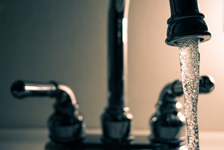 The vast majority of this water, like bottled water, is of underground origin. It is a very controlled water, and with rare exceptions, potable - at least according to the administrative definition that governs it.
The vast majority of this water, like bottled water, is of underground origin. It is a very controlled water, and with rare exceptions, potable - at least according to the administrative definition that governs it.
Its consumption avoids pollution due to its transport or the recycling of its packaging and it costs much less than bottled water.
But safe water does not mean free of harmful substances for everyday use. Many consumer organisations estimate that several million people still have access to water that is polluted with pesticides or nitrates from conventional farming. It is also polluted by bacterial contamination, arsenic or lead, partly because of its transport through pipes containing toxic components.
To conclude...
Leaving aside the risk of pollution by undesirable components, since these are present in both bottled and tap water, it seems fair to say that drinking tap water has clear advantages.
Tap water does not need to be stored, there is no time-consuming transport, it is easily accessible and it is the cheapest (by far) compared to bottled water.
However, as we said earlier, it is not free of residual pollution, which is unfortunately becoming more and more numerous. If it remains drinkable, what about all these particles that accumulate in our bodies in the long term?
So what if the water we have access to is potentially polluted?
A very good solution is to filter it with a Berkey® water purifier, world leader in gravity water purification. The many models of Berkey® water filters guarantee 99.999% safe water. They are efficient, economical, self-contained, and whether you're on the go or not, there is a filtration solution for you. Once you have adopted your Berkey® system, it will quickly become an indispensable part of your daily life.
A Berkey® water filter is economical (less than 1 cent per litre of water filtered), ecological (no more plastic bottles) and autonomous (works without electricity or water supply) !

